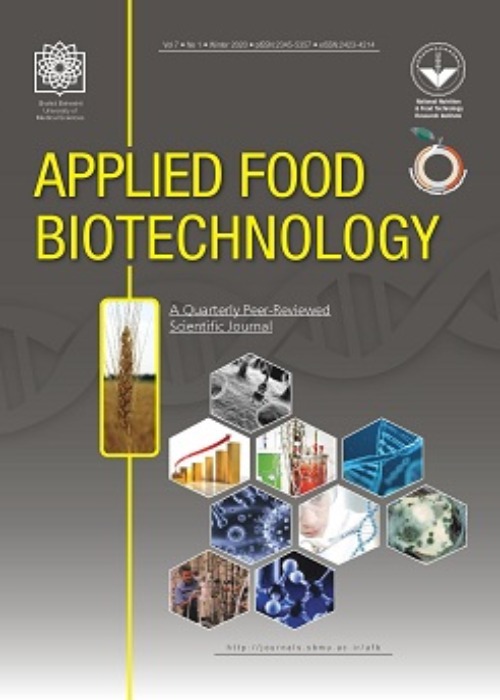Development of Probiotic Apple Juice using Encapsulated Probiotics in Xanthan-Chitosan Based Hydrogels
Non-dairy probiotic beverages such as fruit juices have been popular for all age groups due to their vitamins, minerals, antioxidants and bioactive components with no allergens such as milk proteins and lactose. To exert their health benefits, probiotics should survive during food processing and storage as well as gastrointestinal tract. Incorporation of probiotics into fruit juices is more challenging than that in dairy products because of the low pH. Therefore, encapsulation of probiotics using various hydrocolloids and appropriate methods can protect probiotics from detrimental factors, improving their viability.
In the present study, free and encapsulated Lactiplantibacillus plantarum and Bifidobacterium bifidum were incorporated into apple juice and physicochemical characteristics of the fruit juice (pH, acidity, °Brix and color), viability of the probiotics and sensory evaluation of apple juices were investigated during 60-d storage at 4 °C.
Results showed encapsulation efficiencies of 90.21 and 85.54% for Lactiplantibacillus plantarum and Bifidobacterium bifidum in xanthan-chitosan hydrogels, respectively. Lactiplantibacillus plantarum and Bifidobacterium bifidum populations showed logarithmic decreases of 2.21 and 2.54 in free and 0.93 and 1.02 in encapsulated forms, respectively. However, the two bacteria survived in encapsulated form until the end of storage. In apple juices with free Lactiplantibacillus plantarum and Bifidobacterium bifidum, pH decreased from 3.7 to 3.11 and 3.3, respectively. In encapsulated probiotics, no significant differences were seen in pH of the samples. Moreover, apple juice samples with free probiotics included lower °Brix and higher acidity compared to the samples with encapsulated bacteria. Sensory evaluation of samples revealed that apple juices with encapsulated probiotics received higher scores than that apple juices with free bacteria did. The highest (3.95) and the lowest (2.48) overall acceptability scores after 60 d of storage were observed in samples containing encapsulated Bifidobacterium bifidum and free Lactiplantibacillus plantarum, respectively. It can be induced that use of xanthan-chitosan hydrogels can be used for the efficient encapsulation of probiotics and improve their survival during storage without adverse effects on sensory evaluation.
- حق عضویت دریافتی صرف حمایت از نشریات عضو و نگهداری، تکمیل و توسعه مگیران میشود.
- پرداخت حق اشتراک و دانلود مقالات اجازه بازنشر آن در سایر رسانههای چاپی و دیجیتال را به کاربر نمیدهد.


